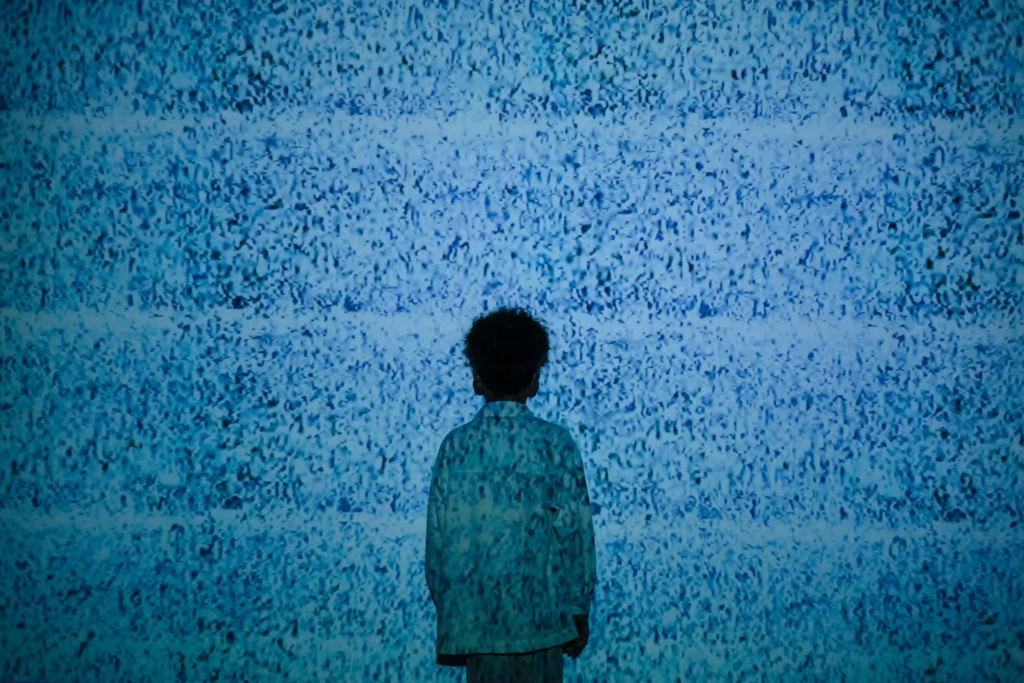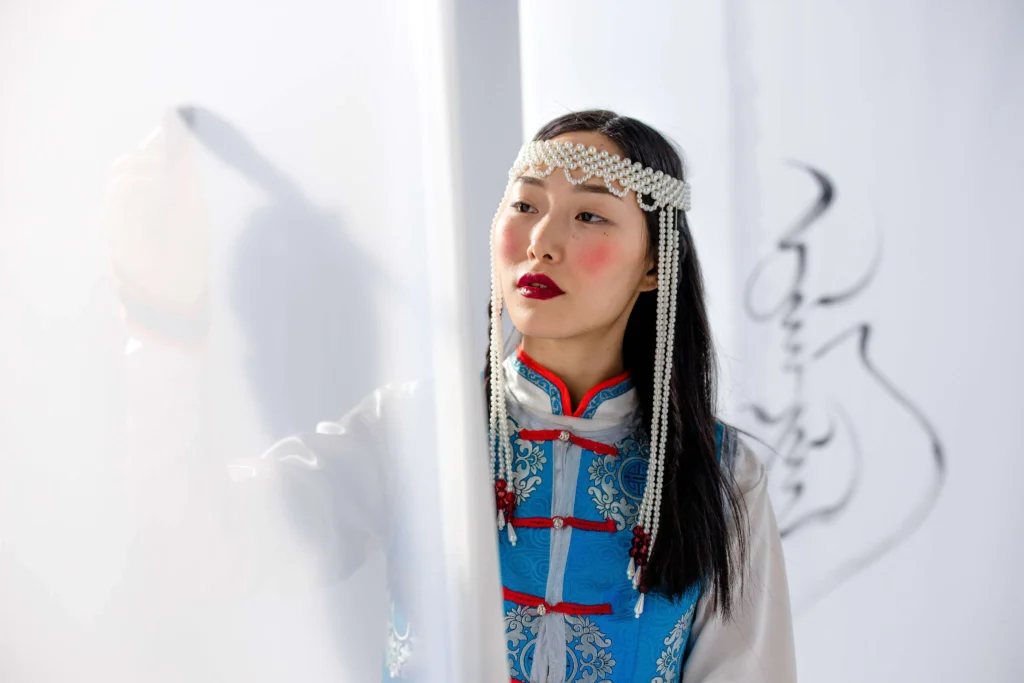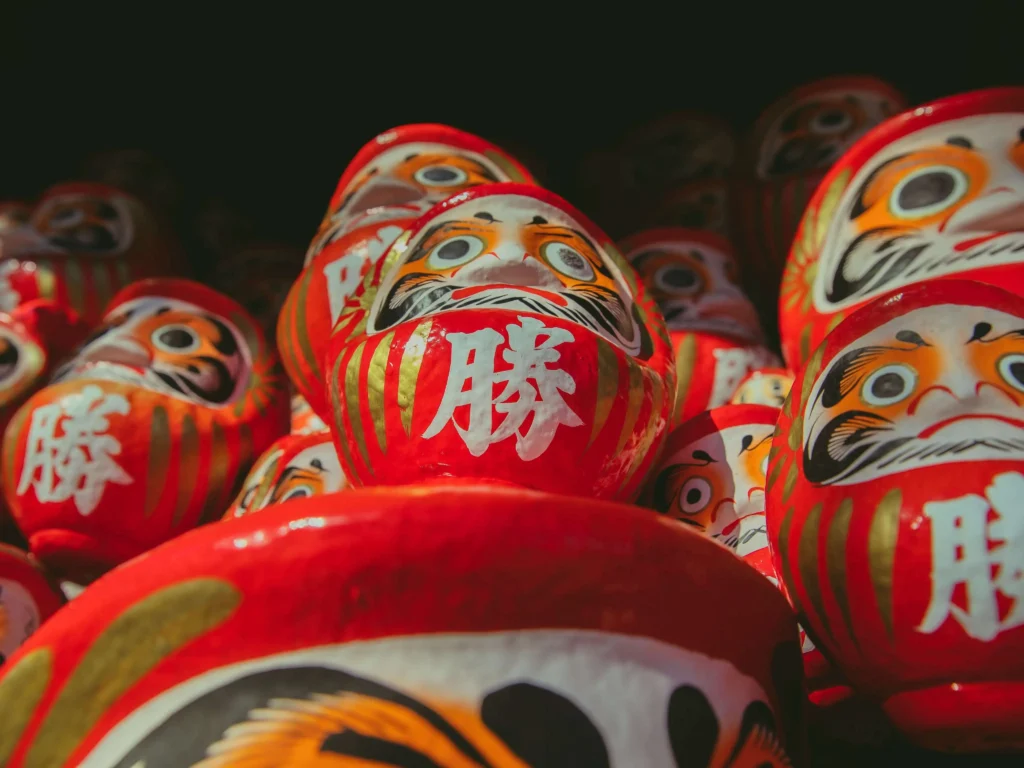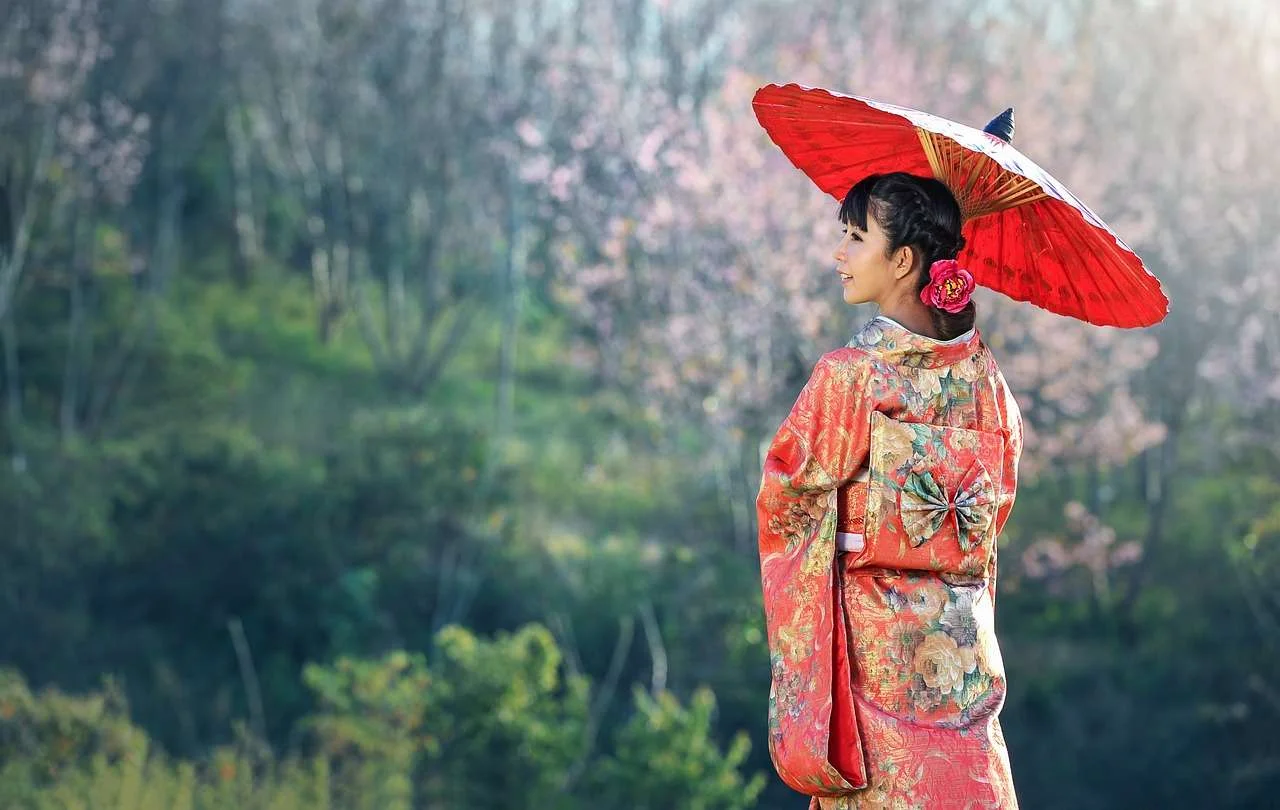In today’s lesson, we will be covering 40 Japanese Girl names with dark meanings. Names have great meaning in the vast fabric of Japanese society. Names tend to include both shadow and mild. Here are fifty-five intriguing Japanese names with eerie connotations.
In Japan, a person’s name—which consists of their given name followed by the names of several relatives is essential to who they are.
The key to that is the Kanji artwork, where a single person can change the substance of the entire name. Enshrined in Japanese society, mythology, and tradition, names frequently reflect the subtle cultural differences within Japan.
Why Japanese Girl Names That Mean Death or Darkness Are Attractive?

The allure of names with sinister connotations is their capacity to arouse feelings of intensity, mystery, and intrigue. The following elements add to the allure of these names:
- Complexity and Depth: Names with ominous connotations often imply layers of subtle meaning, making them appealing to people who value symbolism and language’s richness. These names have the ability to evoke feelings of profundity and refinement, beckoning further investigation and analysis.
- Appealing Aesthetics: Names with a dark theme frequently have an amazing and off-putting aspect. They arouse the imagination and leave a lasting impression, whether they conjure images of ominous landscapes, legendary figures from history, or mysterious personalities.
- Emotional resonance: Names with ominous connotations might evoke feelings of melancholy, desire, or reflection in certain people. These names may also reflect aspects of human experience that are frequently overlooked or misinterpreted, enabling people to connect with their emotions on a deeper level.
- Rebellion and individualism: Darkish-themed names can serve as a declaration of individualism or rebellion in a world where uniformity is frequently cherished. Selecting a name with a darker meaning could also indicate a desire to stand out from the crowd and express one’s individuality.
- Literary and Cultural Associations: A rich layer of cultural significance is added to many names with a dark theme, which derive from mythology, literature, folklore, or records. Names linked to legendary characters or historical personalities evoke a sense of seriousness and timeless quality, which appeals especially to history and tale enthusiasts.
- Sense of Mystery and Intrigue: Names with ominous connotations frequently possess a thrilling or intriguing element that piques curiosity and encourages further research. These names beckon people to uncover their methods and secrets and go to the core of their testimonies, much like a treasure buried deep beneath the surface waiting to be found.
All things considered, the beauty of names with ominous connotations resides in their ability to inspire creativity, elicit strong feelings, and provide an impression of depth and complexity. Those names have a totally distinct charm that never fails to captivate and inspire, regardless of whether they were selected for their artistic appeal, emotional relevance, or cultural significance.
55 Unique Japanese Girl Names with Dark Meanings

1. Akuma – (悪魔)
- Meaning: Demon or Devil
- This name conveys a sense of darkness and malevolence.
- Pronunciation: ah-koo-mah
2. Yami – (闇)
- Meaning: Darkness
- This name symbolizes the absence of light and can evoke feelings of mystery and fear.
- Pronunciation: yah-mee
3. Yurei – (幽霊)
- Meaning: Ghost or Apparition
- This name is associated with the supernatural and the realm of the dead.
- Pronunciation: yoo-ray
4. Kurayami – (暗闇)
- Meaning: Pitch Darkness
- This name suggests an absence of light and an atmosphere of foreboding.
- Pronunciation: koo-rah-yah-mee
5. Onryo – (怨霊)
- Meaning: Vengeful spirit
- This name carries connotations of anger, resentment, and haunting.
- Pronunciation: ohn-ree-yoh
6. Kage – (影)
- Meaning: Shadow
- This name evokes a sense of darkness and secrecy.
- Pronunciation: kah-geh
7. Ayakashi – (あやかし)
- Meaning: Supernatural Being or Monster
- This name is associated with mysterious and otherworldly creatures.
- Pronunciation: ah-yah-kah-shee
8. Ma – (魔)
- Meaning: Demon or Evil spirit
- This name conveys a sense of malevolent supernatural power.
- Pronunciation: mah
9. Yoru – (夜)
- Meaning: Night
- This name symbolizes the darkness and mystery of the nighttime hours.
- Pronunciation: yoh-roo
10. Akumu – (悪夢)
- Meaning: Nightmare
- This name suggests haunting and disturbing dreams.
- Pronunciation: ah-koo-moo
11. Kurai – (暗い)
- Meaning: Dark or Gloomy
- This name conveys a sense of heaviness and melancholy.
- Pronunciation: koo-rah-ee
12. Ankoku – (暗黒)
- Meaning: Darkness or The Void
- This name represents the absence of light and the unknown.
- Pronunciation: ahn-koh-koo
13. Kuroi – (黒い)
- Meaning: Black or Dark
- This name symbolizes the absence of color and light.
- Pronunciation: koo-roh-ee
14. Kiri – (霧)
- Meaning: Fog or Mist
- This name suggests obscurity and confusion.
- Pronunciation: kee-ree
15. Akari – (明かり)
- Meaning: Light or Illumination
- This name contrasts with darkness and can symbolize hope or guidance in the dark.
- Pronunciation: ah-kah-ree
16. Kokoro – (心)
- Meaning: Heart or Spirit
- This name can evoke emotions such as sorrow, longing, or inner darkness.
- Pronunciation: koh-koh-roh
17. Majo – (魔女)
- Meaning: Witch
- This name is associated with dark magic and supernatural powers.
- Pronunciation: mah-joh
18. Yamiyo – (闇夜)
- Meaning: Dark night
- This name emphasizes the darkness and mystery of the nighttime hours.
- Pronunciation: yah-mee-yoh
19. Akui – (悪意)
- Meaning: Malice or ill will
- This name conveys a sense of darkness and hostility.
- Pronunciation: ah-koo-ee
20. Ankokuna – (暗黒な)
- Meaning: Dark or Gloomy
- This name suggests a sense of foreboding and uncertainty.
- Pronunciation: ahn-koh-koo-nah
21. Uzumaki – (渦巻き)
- Meaning: Whirlpool or Vortex
- This name suggests chaos and destruction.
- Pronunciation: oo-zoo-mah-kee
22. Yasha – (夜叉)
- Meaning: Demon or Fiend
- This name is associated with malevolent supernatural beings.
- Pronunciation: yah-shah
23. Yamanai – (止まない)
- Meaning: Unceasing or Relentless
- This name suggests an unstoppable force or presence.
- Pronunciation: yah-mah-nah-ee
24. Yoru no tsumi (夜の罪)
- Meaning: Nighttime sin
- This name conveys a sense of wrongdoing or darkness.
- Pronunciation: yoh-roo noh tsoo-mee
Learn about Japanese last names that carry dark and symbolic meanings
25. Kurayami no Naka – (暗闇の中)
- Meaning: Within the Darkness
- This name suggests being enveloped by darkness and uncertainty.
- Pronunciation: koo-rah-yah-mee noh nah-kah
26. Akuma no kage – (悪魔の影)
- Meaning: Demon’s shadow
- This name evokes a sense of darkness and malevolence.
- Pronunciation:
27. Yami no tenshi – (闇の天使)
- Meaning: Angel of darkness
- This name juxtaposes light and dark, suggesting a complex and mysterious nature.
- Pronunciation:
28. Yoru no kage – (夜の影)
- Meaning: Night shadow
- This name conveys a sense of darkness and secrecy.
- Pronunciation:
29. Kuroi yume (黒い夢)
- Meaning: Black dream
- This name suggests haunting and disturbing dreams.
- Pronunciation:
30. Ankoku no sora – (暗黒の空)
- Meaning: Dark sky
- This name symbolizes the vastness and emptiness of space.
- Pronunciation:
31. Yami no akari – (闇の明かり)
- Meaning: Light in darkness
- This name conveys a sense of hope or guidance amidst darkness.
- Pronunciation:
32. Yami no hikari – (闇の光)
- Meaning: Light of darkness
- This name juxtaposes light and dark, suggesting a balance between opposing forces.
- Pronunciation:
33. Kurayami no yoroi – (暗闇の鎧)
- Meaning: Armor of darkness
- This name suggests protection or resilience in the face of darkness.
- Pronunciation:
34. Akumu no kiba – (悪夢の牙)
- Meaning: Nightmare fangs
- This name evokes a sense of danger or threat.
- Pronunciation:
35. Yami no jumon – (闇の呪文)
- Meaning: Dark spell
- This name suggests the use of magic or incantations for sinister purposes.
- Pronunciation:
36. Kurayami no michi – (暗闇の道)
- Meaning: Path of darkness
- This name conveys a sense of uncertainty or peril.
- Pronunciation:
37. Akumu no kage – (悪夢の影)
- Meaning: Shadow of nightmares
- This name suggests a haunting presence or influence.
- Pronunciation:
38. Yoru no akuma – (夜の悪魔)
- Meaning: Night demon
- This name evokes a sense of darkness and malevolence.
- Pronunciation:
39. Ankoku no miko – (暗黒の巫女)
- Meaning: Priestess of darkness
- This name suggests a connection to dark or forbidden rituals.
- Pronunciation:
40. Yami no shito – (闇の使徒)
- Meaning: Messenger of darkness
- This name conveys a sense of ominous purpose or intent.
- Pronunciation: yah-mee noh shee-toh
Popular Trends in Japanese Girl Names with Dark Meanings

The variety of female names in modern Japan is as varied and vibrant as it has ever been, showcasing a lovely blend of modern trends, international influence, and cultural customs.
Traditional Names
Traditional names, which have their roots in mythology, the natural world, and history, continue to be beloved choices for many parents who want to pay homage to their culture’s past. These names, along with Hina (sunlight), Sakura (cherry blossom), and Haruka (a long way distance), all allude to enduring family ties and ideals.
Western Influence
However, there is a noticeable influence of Western naming customs along those ageless classics. English, French, and other Western names have become popular among Japanese parents, indicating a preference for global ties and contemporary styles. Just a few names that have adapted well within the Japanese naming landscape are Emily, Sophia, and Mia.
Gender Neutral Names
Additionally, there is a remarkable trend toward gender-neutral names, which reflects broader cultural movements toward inclusion and diversity. Names that reject established gender norms, such as Haru (spring), Rei (gratitude), and Ren (lotus), evoke a sense of fluidity and universality.
Influence of Pop Culture
It is impossible to overestimate the influence of Japanese popular culture, especially anime and manga, on naming customs. Animated series characters are a common source of inspiration for names for actual children, adding whimsy and nostalgia to the naming pool. Names like Asuka from Neon Genesis Evangelion, Sakura from Cardcaptor Sakura, and Hinata from Naruto are just a few instances of names that have gained popularity due to their associations with well-known figures.
Fashionable and Trendy Names
In addition, trendy and innovative brands are growing due to the influence of social media, celebrities, and popular culture. Yua, Himari, and Hiyori are names that epitomize the spirit of contemporary Japan, embodying avant-garde preferences and decisions.
Return of Former Names
Resurgent interest in retro or out-of-date names has been observed in recent years, suggesting a desire to restore names from earlier generations. A handful of names that are undergoing a renaissance are Sora (sky), Mei (lovely), and Mio (cherry blossom). These names are associated with a sense of nostalgia and a bygone era.
Didn’t Like a Name Here? Check Out Our Name Generator
Kanji Combinations
Kanji combinations play a crucial position in name selection, allowing the mother and father to infuse names with specific meanings and symbolism. Each kanji character carries layers of significance, contributing to the general meaning and essence of the name.
Unique Pronunciations and Spellings
Furthermore, particular pronunciations and spellings upload a non-public touch to standard names, fostering a sense of individuality and creativity. Ririka, Aoi, and Ayane exemplify names that stand out while retaining cultural authenticity.
International Names with Japanese Twist
Creative ways to use global names provide parents with another avenue to express their creativity. Combining local and international influences in a harmonic way is possible by changing foreign names to fit Japanese pronunciation and writing standards. Emi (Emily), Rina (Lina), and Arisu (Alice) are three examples of this trend of blending cultures.
Celestial and Nature-inspired Names
Celestial and naturally inspired names are also becoming more and more popular since they inspire awe and a sense of belonging to the natural world. The themes of beauty, mystery, and transcendence are covered by Luna (the moon), Hoshi (the star), and Tsuki (the moon).
All things considered, Japanese girl names with dark meanings encompass a diverse array of subcultures, innovations, and alternative cultures. Whether derived from long-standing traditions or created with contemporary inspiration, those names reflect the rich diversity and dynamic character of Japanese society.
Frequently Asked Questions (FAQs)
Why do some Japanese girl names have dark meanings?
There are other sources of dark meanings associated with Japanese girls names, such as mythology, cultural aspirations, or personal possibilities. While some parents love the rich cultural and historical connotations that names with gloomy themes offer, others are drawn to names that generate a sense of suspense or echo with their personal reports.
Are Japanese girl names with dark meanings popular in Japan?
Even though they're not as common as more popular conventional or mainstream names, Japanese girl names with sinister connotations nonetheless appeal to some demographic groups. They fascinate those who value names with particular or evocative traits, such as a hint of depth and complexity in the identities of their children.
Do Japanese girl names with dark meanings have cultural significance?
Yes, Japanese girl names with dark meanings continue to hold cultural significance, reflecting deeper societal attitudes toward spirituality, folklore, and the intricacies of human emotions. These names might also evoke ideas of historical events, mythological characters, or herbal phenomena, offering a glimpse into Japan's diverse cultural heritage.
Do Japanese girl names with dark meanings carry any symbolism?
Yes, Japanese girl names with dark meanings frequently carry significant symbolic connotations reflecting different facets of human lives, spirituality, and enjoyment. These names may conjure ideas of resiliency, self-examination, and life's cyclical nature. Names like Yami (which means "darkness"), for example, could also allude to the secrets of the cosmos or the hidden recesses of the human mind.
What is a rare Japanese girl name?
A rare Japanese girl name is one that is either rarely heard of or used in the Japanese naming community. These names may not be as well-known or as often followed as they once were, but they consistently stand out for their uniqueness and specialization. Selecting a remarkable Japanese lady call can provide the bearer a sense of uniqueness and specialization, setting them apart from others with more common names.
Concluding Thoughts
Ultimately, Japanese girl names with dark meanings offer an enthralling window into the subtleties of Japanese language and culture. These names, rich in history and meaning, reflect a profound understanding of the subtleties of spirituality, human emotion, and the herbal world.
Even while they won’t be as popular as more conventional names, they nevertheless have a certain appeal for people looking for names that are meaningful, memorable, and distinctive.
From names like Yami, which means darkness, to Kurayami, which means gloom, each has a unique meaning and story that evokes reflection and a mirror image of the darker aspects of life and existence.
Japanese girl names with dark meanings are intense and intriguing, whether they are selected for their aesthetic appeal, personal importance, or cultural resonance.
They provide a window into the rich fabric of Japanese identity and stand as a testament to the enduring ability of language to convey the intricacies of the human experience.
Those names remain a timeless reminder of the beauty and diversity of Japanese naming customs even as naming characteristics continue to change.
